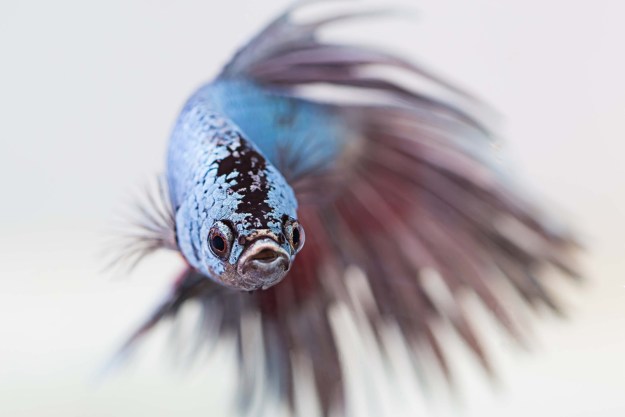When you bring home a dog, you suddenly have a full laundry list of must-dos, including many things that weren’t even on your radar before. You’ve probably heard of heartworm in dogs, but hopefully have never experienced it. While generally preventable, heartworm can be deadly for pets. All it takes is one tiny mosquito bite and you’ll be out thousands of dollars (not to mention have a very sick animal). This is what you need to know to keep your pup safe from heartworm (and treat them if necessary).

What is heartworm?
Unlike ringworm, heartworm is exactly what it sounds like — a parasite that infects your pet’s heart and can kill him if left untreated. These gross worms look like cooked spaghetti and grow up to a foot long inside your pup’s heart. They restrict bloodflow and can cause damage to both the heart and lungs. Eventually, if left untreated, other organs are impacted as well. A dog with no treatment might develop caval syndrome, which is deadly.

How do dogs catch heartworm?
It all starts with a mosquito bite. Even though the pest itself isn’t infected with heartworm, it can carry around the tiny babies, called microfilariae. Once inside your pooch, they grow into adults and infect the heart. Remember though that it’s not transmittable pet to pet, so even if one of your animals has it, there’s no reason to isolate him. It’s also more common in warm weather so particularly prevalent in the southern U.S. and in summer.

Do dogs really need heartworm prevention?
A monthly preventative will eliminate most cases if given consistently. Pets should be tested yearly as well. You can also try to keep them away from mosquitos with dog-safe repellant (but give him the preventative regardless of other measures).

What does heartworm treatment look like?
If the worst happens and you adopt a pet that already has the condition or he’s part of a very small group who catch it even with preventative, there is a treatment available. With the new injections, 98% of dogs survive when it’s caught in time. That’s why it’s crucial to get him tested, no matter how conscientious you are about his monthly pill.
Diagnosis
If you just got a positive test back from your vet, don’t panic. Fido will likely make it if he’s otherwise healthy. Your vet will recommend other diagnostic tools such as x-rays and further blood testing. Like anything else, false positives do happen, so you might run the test again with a new sample if it’s particularly unlikely that he was infected.
Prepping for treatment
The second you hear that your little guy has heartworm, he will have to go on exercise restrictions. Consult with your doggie doctor to get a firm grasp on what this entails and how to implement it safely. You may decide to give a mild sedative if you have a difficult time keeping him calm, like with a puppy or a highly active breed. Additionally, your vet might prescribe antibiotics or steroids to get your animal set for treatment. This is extremely important: Do not give him a heartworm preventative! Because his system already has the parasites, it could cause him to go into shock and even die.
Injections
Most likely, your vet will recommend injections to combat his heartworms. If everything goes smoothly, this should be three total shots. The first will take place after he finishes his preparation meds and then the second will be one month later. The last one happens a day after that. It’s almost guaranteed that you’ll leave your pet all day or even overnight. It might be tough, but he’s in good hands.
Follow up
The double-injection can be rough on some pups, and your vet may decide to send you home with pain medicine or anti-nausea pills. Check in the next day to ensure that everything went well. It’s important to also have an emergency dog hospital on speed dial in case anything happens after hours.
One month after he’s finished with the treatment, you’ll go back for a check-up and they may decide to do bloodwork or x-rays at that time. However, while the worms are still dying, he might have symptoms, and it can take six months or even longer for a negative heartworm antigen test. Check in with your care team for the exact timeline.
Long-term effects
The great news first: If your pupper makes it through treatment, he’ll most likely live a full and healthy life. Sometimes dogs continue to have a cough even if there’s nothing else going on, and you can treat those symptoms with a suppressant. In more serious cases, beasties do wind up with long-term effects, like a heart murmur or heart disease. Work with your provider to figure out the best options in those rare cases.
The best defense for heartworm is a good offense. We can’t stress this enough: Don’t skip his monthly heartworm dog prevention no matter what and get in touch with your vet if you miss one. You can also look into heartworm preventative shots (not to be confused with the treatment shots). These only need to be given every six or 12 months if you have trouble remembering consistently. Even the most careful owner might wind up with a heartworm-positive pet (cats can get heartworm, too). But, with your help, he’ll get through it.
Editors' Recommendations
- Why does my dog have a bald patch on their tail? Here are the answers you need
- Looking for signs your dog has ticks? These telltale symptoms mean you have a flea or tick problem
- Is your dog barking nonstop? Here’s how to get your noisy pup under control
- What you need to know about dogs with blue eyes
- Could it be a dog paw infection? Signs, symptoms, and treatments for these pesky, painful issues







